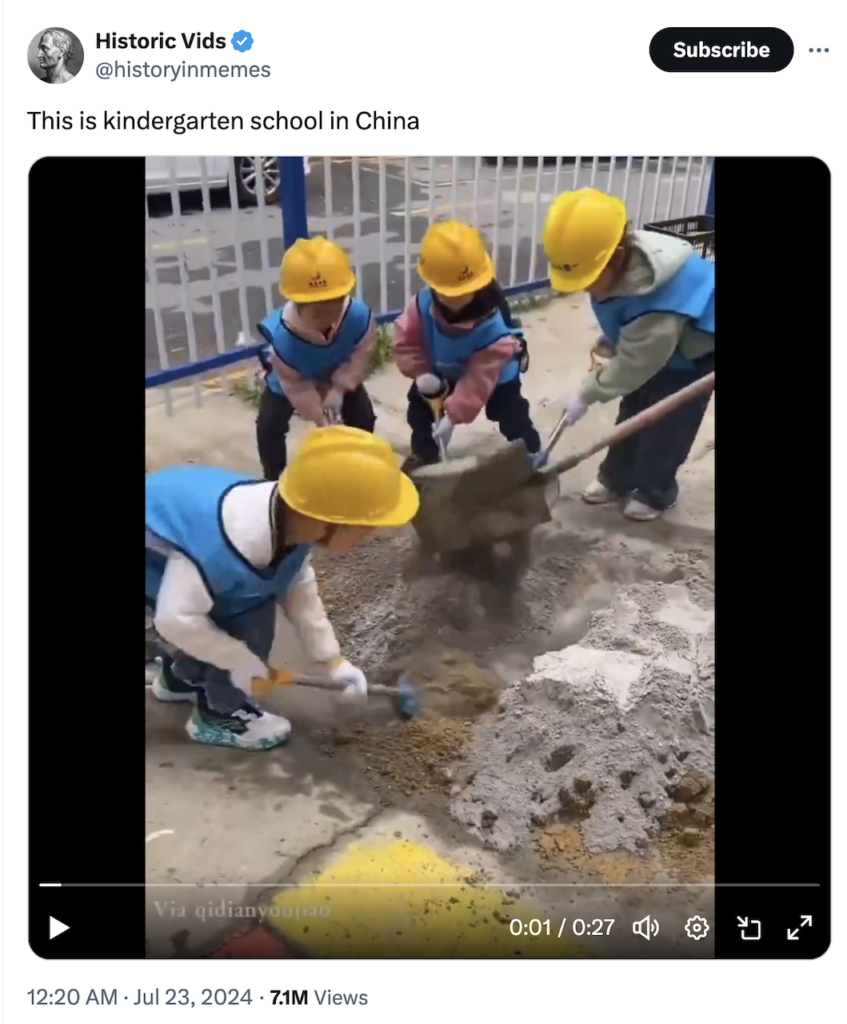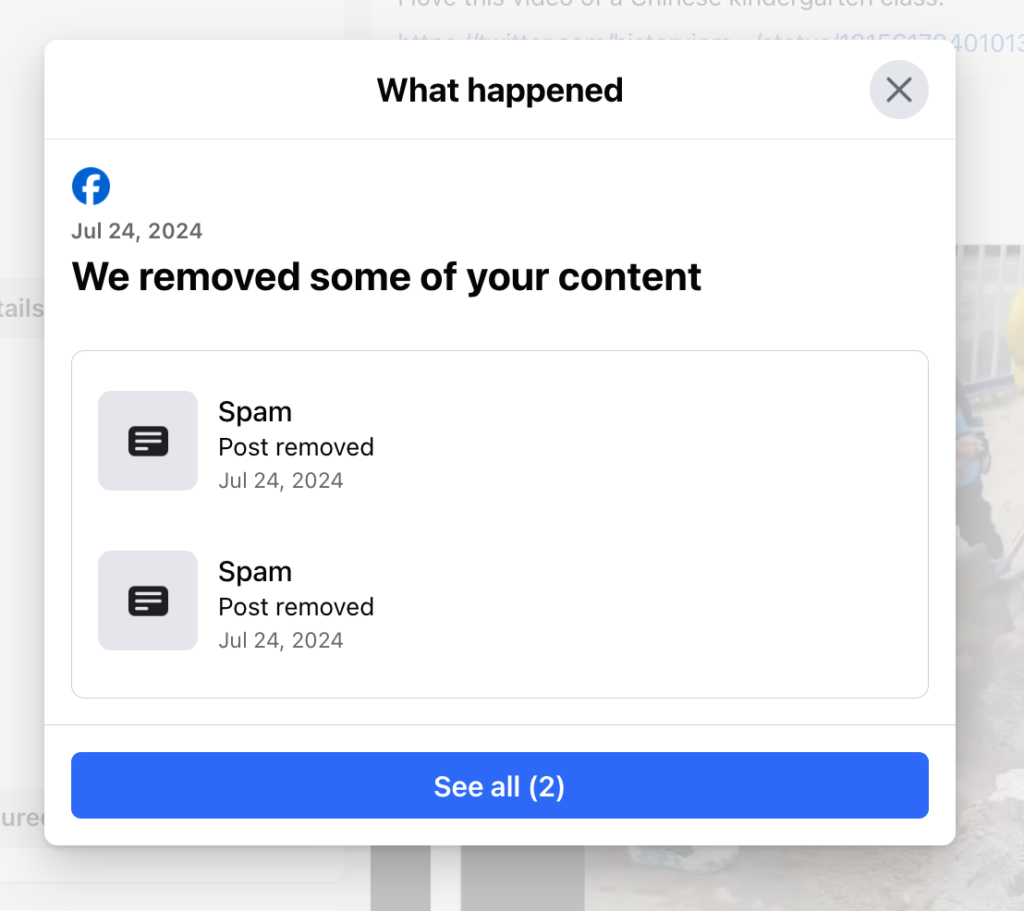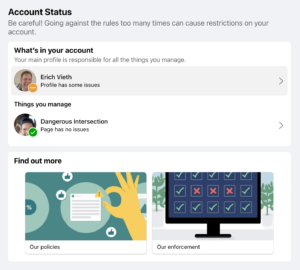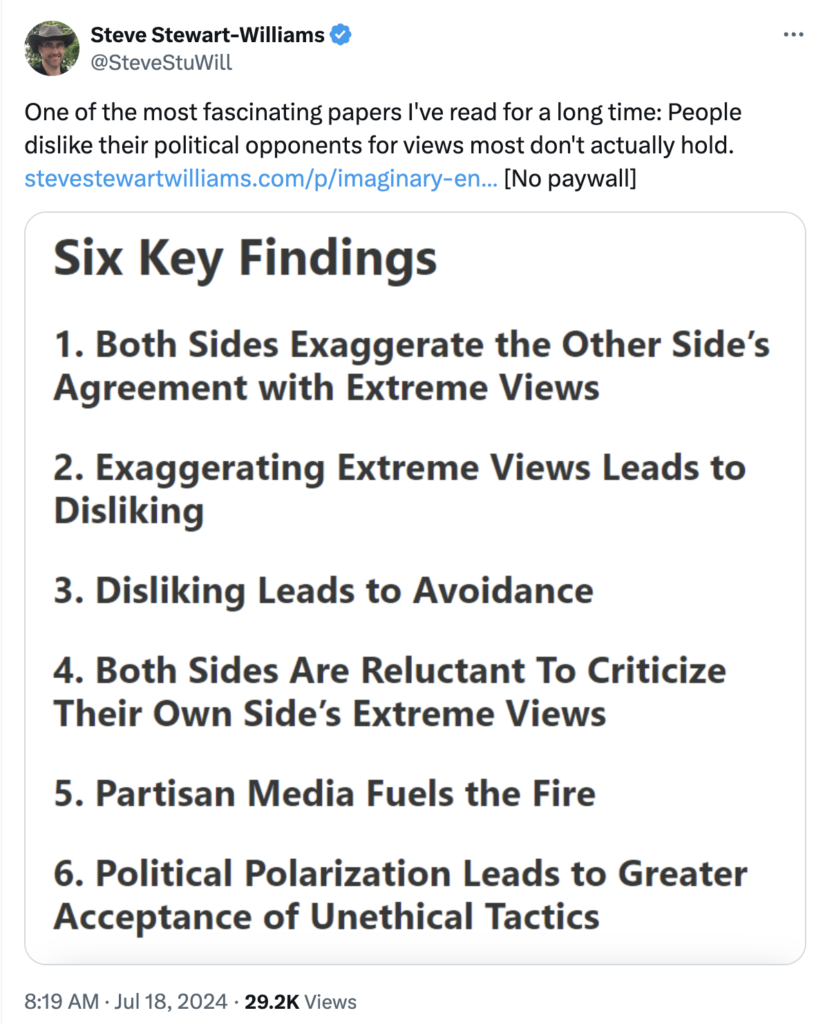We Need More Hands-On Education Like This
I'm not being sarcastic. I think that the lack of hands-on know-how is damaging our children. They are not well-prepared for this world by clicking at their laptop computers and using their credit cards to hire other people to do so many of the physical things they need and want.
Thus,this video made my day:
I posted this on FB twice and FB took it down twice because it was "spam." I had merely posted this image with the link to Twitter, along with a comment that I enjoyed seeing this video of a Chinese kindergarten class:
This is the third time this month that FB has deleted my non-spam posts as "spam."
Here's how Facebook defines "Spam":
Spam Policy detailsPolicy Rationale We do not allow content that is designed to deceive, mislead, or overwhelm users in order to artificially increase viewership. This content detracts from people's ability to engage authentically on our platforms and can threaten the security, stability and usability of our services. We also seek to prevent abusive tactics, such as spreading deceptive links to draw unsuspecting users in through misleading functionality or code, or impersonating a trusted domain.
Online spam is a lucrative industry. Our policies and detection must constantly evolve to keep up with emerging spam trends and tactics. In taking action to combat spam, we seek to balance raising the costs for its producers and distributors on our platforms, with protecting the vibrant, authentic activity of our community.




